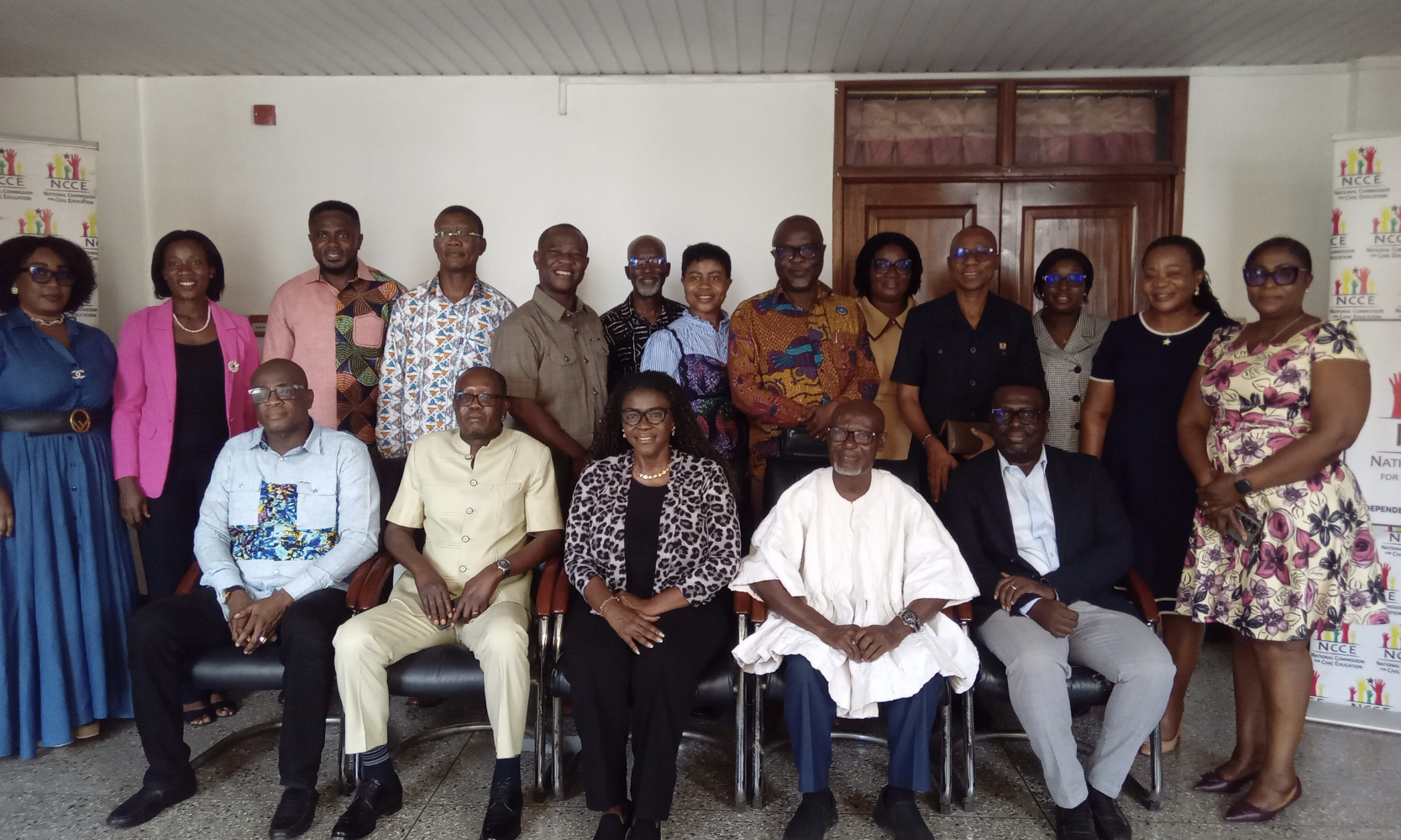NCCE plea for sustainable funding, infrastructure upgrade – Nsemkeka
The National Commission for Civic Education (NCCE) is facing significant challenges, including inadequate funding and dilapidated infrastructure.
The NCCE’s Chairperson, Madam Kathleen Addy, has lamented the poor state of their offices, describing them as “infrastructurally very dangerous.”
“The NCCE’s head office and regional offices are in disrepair, hindering staff’s ability to work effectively,” she told the Committee.
Madam Addy said this during a day’s working visit by the Select Committee on Independent Constitutional Bodies of Parliament to the Commission on Tuesday.
The Committee on Independent Constitutional Bodies as part of its oversight duties undertook a familiarization visit to six independent constitutional bodies from Monday to Tuesday to assess operational challenges of institutions under its watch and identify areas where Parliament could offer support.
According to the NCCE Chairperson, the Commission relied heavily on donor support, which was dwindling and called for a stable funding mechanism to ensure independence and sustainability.
“We can do the work, but we cannot fund projects, so institutions need to fund projects we go into with them,” Madam Addy emphasized, highlighting the NCCE’s resource constraints.
Mr Mahama Ayariga, the Chairman of the Committee and Majority Leader of Parliament, in his reaponse said, “We need to find ways to guarantee funding for these institutions, without putting them at the mercy of political actors.”
“Our doors are open for collaboration, and we want to work together to come up with ideas that Parliament can use to protect the structure of these institutions,” Mr Ayariga added.
The Committee also visited the National Media Commission and the Audit Service.
The NCCE is a public body established by Act 452 of the Parliament of Ghana in 1993. Its mandate includes educating Ghanaians on civic matters, promoting democracy, and protecting human rights. The commission is governed by a seven-member board, headed by a chairperson, and includes two deputies and four members appointed by the President of Ghana.

